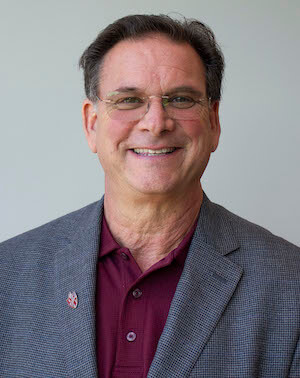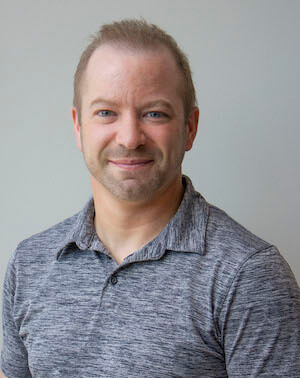Every day, approximately 10,000 Americans turn 65 — a population shift often referred to as “the Silver Tsunami.” Advances in medicine and technology are helping people to live longer, which is also creating a high demand for leaders
trained to provide high-quality care at a reasonable cost in a rapidly changing healthcare environment.
Louisville -- home to one of the nation’s largest group of headquarters for nursing home, rehabilitation, assisted living and home-health organizations -- has positioned itself as the aging-care capital of the United States. Bellarmine University
plans to become nationally known for preparing leaders for this industry through its
Health Services and Senior Living Leadership Department,
a rapidly growing program at the intersection of health care, business and social justice.
“The opportunities in this aging economy are just incredible,” said Dr. Mark Wiegand, Bellarmine’s associate provost. In fact, according to the U.S. Census Bureau, one in five adults in the U.S. will be 65 or older by 2030, and that
number will double by 2050. “There is a very high demand for these graduates.”
Graduates from Bellarmine’s program can find careers as administrators in institutional post-acute care or home- and community-based services or housing; as leaders in finance, human resources, marketing and public relations, environmental and risk
management and health informatics; and in regulatory agencies in the public sector. According to the Bureau of Labor Statistics, the median pay in 2018 for medical and health services managers was $99,730 per year.
Dr. David G. Wolf and Dr. Kevin Hansen, the leaders of Bellarmine’s Health Services and Senior Living Leadership Department, are nationally recognized in the aging-care sector. Both joined Bellarmine’s faculty in July 2019 to
build on a foundation laid by Dr. Wolf’s predecessor, Dr. Keith Knapp. They were drawn in large part by Louisville’s commitment to aging well.

Dr. David Wolf
|
Louisville’s Lifelong Wellness and Aging Care cluster is one of five key economic drivers for the city, where aging care is a $50 billion-a-year industry.
“Landing either of them would have been great,” Dr. Wiegand said. “Landing both is outstanding.”
Dr. Wolf, a full professor and the new chair of the Department of Health Services and Senior Living Leadership, owned and operated a nursing home and an assistedliving facility in Linwood, N.J., before deciding to pursue an academic career. He
came to Bellarmine from Barry University in Miami Shores, Fla., where he had been a professor, academic coordinator for Health Services Administration and, since January 2019, interim dean of the School of Professional and Career Education (PACE).
He was previously CEO of the nationally recognized INTERACT Training Education And Management (ITEAM) Strategies Inc., an organization he helped develop to assist the long-term care industry to improve the care of older people who experience acute changes
in condition in nursing homes, assisted living facilities and home health care. INTERACT is an evidence-based quality improvement program designed to prevent unnecessary and costly re-hospitalizations of older adults.

Dr. Kevin Hansen
|
Dr. Hansen, an assistant professor in Health Services and Senior Living Leadership, came to Bellarmine from the University of Wisconsin–Eau Claire Health Care Administration program, from which Bellarmine’s program was modeled, and
worked extensively with seniors completing a yearlong practicum experience (i.e., internship) at care communities throughout the Midwest. He began his career as an attorney with a focus on elder law and health law, and worked extensively on public
policy reform and elder maltreatment issues prior to his time in higher education.
- Bachelor of Arts in Health Services: Covers topics related to social justice and health care access disparities, technology, health care finance and service trends, and includes an internship.
- Bachelor of Science in Health Services and Senior Living Leadership: Explores the post-acute-care health care segment with courses in gerontology, regulatory compliance, business and legal environments, facilities and program design and leadership,
and also includes an internship.
- Bachelor of Science in Health Services Executive Leadership: Builds on existing coursework with a comprehensive didactic review and a 1,000-hour internship, which qualifies graduates to sit for the licensing exam required to operate a nursing
home or skilled nursing facility.
Managing a long-term care facility is challenging but rewarding work, Dr. Hansen said. “You are serving many people at a time—including residents, their families, staff members, and more—so there are lots of facets. However, you get
to see the positive impact you have on residents’ lives each and every day, and how you help them live a better life with the work you do.”